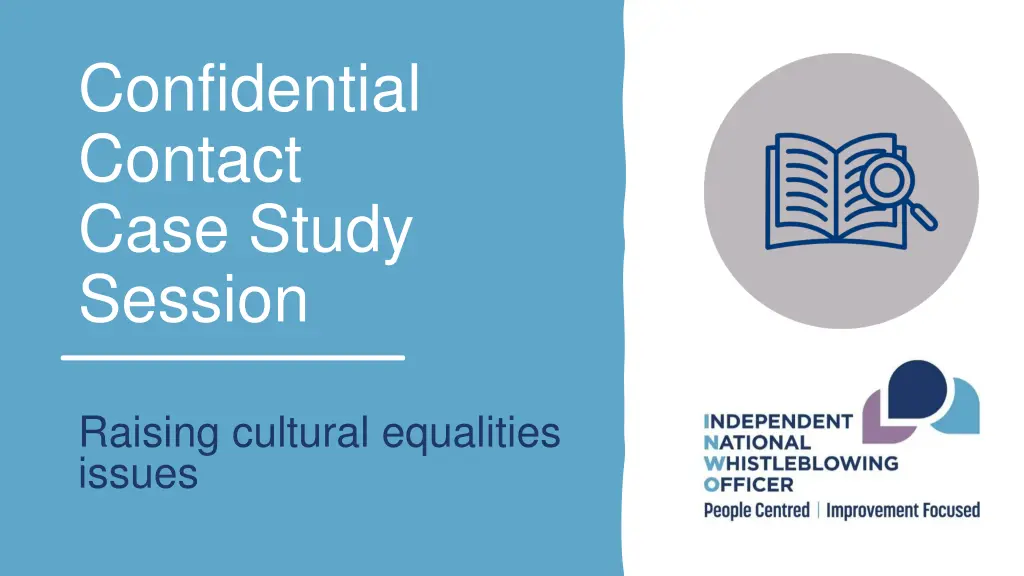
Addressing Cultural Inequalities: Whistleblowing Concerns in the Workplace
Explore the case study session focused on raising cultural inequalities issues within an organization. The content delves into practical preparations, initial thoughts, questions, and information dissemination in response to concerns raised by staff. Key discussions include identifying whistleblowing concerns, considering HR involvement, seeking advice, and understanding the broader impact of reported issues. Navigate through the complexities of navigating cultural equalities issues within a professional setting.
Download Presentation

Please find below an Image/Link to download the presentation.
The content on the website is provided AS IS for your information and personal use only. It may not be sold, licensed, or shared on other websites without obtaining consent from the author. If you encounter any issues during the download, it is possible that the publisher has removed the file from their server.
You are allowed to download the files provided on this website for personal or commercial use, subject to the condition that they are used lawfully. All files are the property of their respective owners.
The content on the website is provided AS IS for your information and personal use only. It may not be sold, licensed, or shared on other websites without obtaining consent from the author.
E N D
Presentation Transcript
Confidential Contact Case Study Session Raising cultural equalities issues
You have mail! You receive an email from a group of concerned staff. Take a few minutes to read the email.
Discussion part one Do you need to consider any practical preparations for your conversation? What are your first thoughts? What questions do you have? What information do you think you might need to pass on to the group?
What have we learned? Prepare signposting information for the meeting but ask questions to ensure you understand the concern Sometimes it can be very unclear whether or not something is HR or whistleblowing. It s okay to explore this with the whistleblowers by asking for more information If you are unsure about the options, it s okay to meet or call again once you have found out the information you need
What do we know so far? The Concern: The Whistleblowers: Culture of racism impacting on staff Are NHS employees Have witnessed and/or experienced racism Consider the issues are widespread Are scared to raise individually
Discussion part two What are your first thoughts? Do these concerns meet the whistleblowing definition? Do you think signposting to HR is appropriate? Do you need to ask for advice or look for further information?
What have we learned? You can contact others for general advice including Confidential Contacts in your own organisation or the network, the INWO advice line and your whistleblowing lead Groups can raise concerns under the Standards but they need a shared agreement of the issues and the outcomes sought An HR issue (like bullying) can become a whistleblowing concern if there is significant wider impact suggesting a poor speak up culture
What has been agreed The whistleblowers wish to access the Standards but do not need support from you The whistleblowers will raise directly with a lead person representing the group The Board will assess eligibility for the whistleblowing procedure
Discussion part three Is there anything that you would have done differently? Did you know that you could contact the INWO or other Confidential Contacts for advice if needed? How did it feel to work through this example? Are there any takeaway actions for you?
Thank you There is a hand out to take away This includes the full case study, some key learning points and links to helpful sources of information CC Case Study 5
